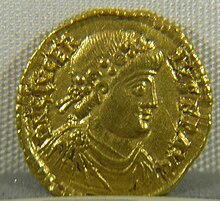This article needs additional citations for verification. (November 2024) |
| Millennium: | 1st millennium |
|---|---|
| Centuries: | |
| Decades: | |
| Years: |
| 473 by topic |
|---|
| Leaders |
| Categories |
| Gregorian calendar | 473 CDLXXIII |
| Ab urbe condita | 1226 |
| Assyrian calendar | 5223 |
| Balinese saka calendar | 394–395 |
| Bengali calendar | −120 |
| Berber calendar | 1423 |
| Buddhist calendar | 1017 |
| Burmese calendar | −165 |
| Byzantine calendar | 5981–5982 |
| Chinese calendar | 壬子年 (Water Rat) 3170 or 2963 — to — 癸丑年 (Water Ox) 3171 or 2964 |
| Coptic calendar | 189–190 |
| Discordian calendar | 1639 |
| Ethiopian calendar | 465–466 |
| Hebrew calendar | 4233–4234 |
| Hindu calendars | |
| - Vikram Samvat | 529–530 |
| - Shaka Samvat | 394–395 |
| - Kali Yuga | 3573–3574 |
| Holocene calendar | 10473 |
| Iranian calendar | 149 BP – 148 BP |
| Islamic calendar | 154 BH – 153 BH |
| Javanese calendar | 358–359 |
| Julian calendar | 473 CDLXXIII |
| Korean calendar | 2806 |
| Minguo calendar | 1439 before ROC 民前1439年 |
| Nanakshahi calendar | −995 |
| Seleucid era | 784/785 AG |
| Thai solar calendar | 1015–1016 |
| Tibetan calendar | 阳水鼠年 (male Water-Rat) 599 or 218 or −554 — to — 阴水牛年 (female Water-Ox) 600 or 219 or −553 |

Year 473 (CDLXXIII) was a common year starting on Monday (link will display the full calendar) of the Julian calendar. At the time, it was known as the Year of the Consulship of Leo without colleague (or, less frequently, year 1226 Ab urbe condita). The denomination 473 for this year has been used since the early medieval period, when the Anno Domini calendar era became the prevalent method in Europe for naming years.